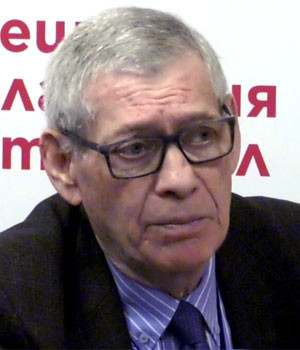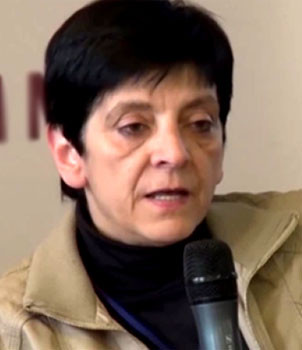Nearly 8% of the citizens of the European Union belong to the minorities groups and nearly 10% of them speak regional or minority language, data quoted in a resolution of the European Parliament show. This once again confirms the understanding that Europe is a patchwork of cultures, languages, religions and traditions uniting people with common values. There is a common understanding that all European citizens should be able to speak their mother tongue on the street or in any other public place without fear. However, the term minority does not yet have a Europe-wide legal framework. Descriptions of this term exist in various international documents, but there isn’t any single definition of it. Perhaps, this is the reason why the countries use different approaches to the term “minority”. For instance, Germany only lists ethnic or linguistic minorities such as Danish, Sorbs, Roma, Frisians, Sinti, etc. In countries like Belgium or in countries which are not EU members such as Russia and Moldova, a common definition of the minority is given, without listing the ethnic or linguistic communities that are part of it.
The topic regarding community funding is also resolved in a similar way in order to preserve their national identity, culture and language. However, the individual solution of this case from each country causes a number of problems as well. It also creates insecurity among the communities, which develop activities aimed at preserving their culture and traditions.
In Bulgaria, there is a legal framework, which explicitly defines equal rights for people regardless of their nationality, race, religions and social origin. It is within the power of the Bulgarian Minister of Foreign Affairs to protect the Bulgarian national minorities abroad. However, the Bulgarian communities abroad still have difficulties securing funds for their activities.
 Journalist Iossif Davidov from Nova Duma newspaper of the Bulgarians in Spain contends that the financial assistance to the Bulgarian media abroad is important so they can fulfill their purposes.
Journalist Iossif Davidov from Nova Duma newspaper of the Bulgarians in Spain contends that the financial assistance to the Bulgarian media abroad is important so they can fulfill their purposes.
Every Bulgarian in Spain, in Madrid, with own business, a pub or a workshop, can give EUR 50,000, but the state authorities refuse this assistance. Romania for instance, which also publishes its newspaper in Spain, has a Ministry for Romanians Abroad. Each year it allots between EUR 10,000 and EUR 15,000 in subsidies to Romanian media abroad after a public procurement order.
 In Croatia, which is also an EU member, the state authorities finance the minorities and their activity. Diana Glasnova publishes in Zagreb Rodna Rech the Bulgarians and the Croats in that country.
In Croatia, which is also an EU member, the state authorities finance the minorities and their activity. Diana Glasnova publishes in Zagreb Rodna Rech the Bulgarians and the Croats in that country.
We want to explain to the Croats who are we and tell them more about Bulgaria. Otherwise, how can we show respect for a minority if it is unknown. That is why we write in Bulgarian and Croatian, which makes us unique. Now, practically even the Croatian President and the Croatian Ministers read our magazine and the Congress Library in Washington has been buying our magazine for the fourth consecutive year. The Croatian authorities entirely finance the magazine.
One year ago on November 13 the European Parliament voted a resolution calling on the European Commission to develop the so-called common European minimum standards for the minorities abroad in order to equalize and improve the conditions for the national and linguistic minorities in Europe. One of these standards guarantees equal opportunities for minority groups and communities to participate equally in the political and social life. Another standard supports the knowledge and skills of these groups to protect and develop their cultural heritage, including through the creation and maintenance of tangible cultural finds. The use of minority languages in media and licensing of media services to minority groups is also encouraged. The access to mother language and access to the official language of the country these people live in, as well as the abolishment of administrative and financial impediments which may hamper linguistic diversity and prevent minorities from joining the full spectrum of professions is also mentioned. Now it is in the hands of the European Commission, whose new President Ursula von der Leyen said in her programme speech before she was appointed at that position, that she would uphold the rule of law for every citizen of the EU and that she will work for a Union of equality, tolerance and social justice.
English version: Kostadin Atanasov
Photos: BTAFrom today, residents of Stara Zagora, young and old, can send their letter to Santa Claus. A letterbox has been set up in the foyer of the city's State Puppet Theatre to collect messages for Father Christmas. The cultural institution guarantees that..
A Christmas tree with Bulgarian decorations has been placed in a central location at the Griffin Museum of Science and Industry in Chicago. For the fifth consecutive year, Bulgarians living in Chicago crafted the lavish decoration of the Bulgarian..
The usurpation of cultural heritage is one of the many inevitable consequences of any military conflict, both historically and today. Until the end of the war in Ukraine, it is impossible to adequately analyse the extent of the damage caused to the..
The Varna Regional Library "Pencho Slaveykov" has acquired a humanoid robot. It was unveiled by the library's director, Radka Kalcheva, during the..

+359 2 9336 661
